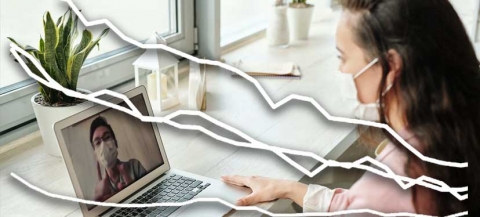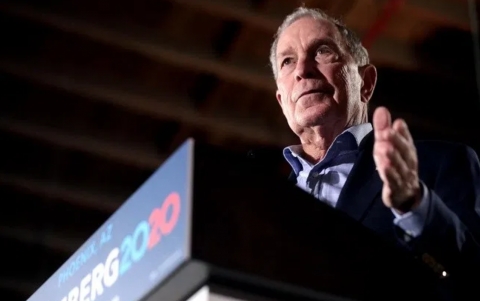What We’ve Learned About Savings During COVID-19
Last year, we published a report that analyzed low- and moderate-income (LMI) people’s financial situation and the systems that support or block them from building their savings. Since then, the COVID-19 pandemic, and its ensuing economic fallout, has inflicted severe financial hardship on millions of Americans. As we’ve discussed in past blog posts, it’s not accurate to ascribe blame to the pandemic as the source of the economic calamity that LMI people face today. In fact, our analysis highlighted the economic systems (banking, business, labor and government policy, among others) that produced adverse financial consequences then and exacerbate inequality now.
There is a lot to learn from the recession about LMI people’s ability to save and which systems are helping or hurting them in that effort. Three broad trends caught our attention:
- Declining incomes, in part due to declining union membership, eroded LMI people’s ability to save.
- Inequities in the banking system have a significant impact on LMI people’s ability to save.
- Government support, for those who received it, had a significant impact on LMI people’s savings and well-being during the crisis.
Declining Income
As others have argued, income stagnation, the decoupling of productivity from incomes and income inequality overall are closely correlated with the attack, and subsequent decline, of labor unions. Union membership allows LMI people to take home more income that they could then save. Unions also disproportionately benefit people of color.
Research by the Economic Policy Institute (EPI) shows that “on average, a worker covered by a union contract earns 13.2% more than a peer with similar education, occupation and experience in a nonunionized workplace in the same sector.”
The same study from EPI finds that:
- Black workers are more likely than White workers to be represented by a union (see graph), a dynamic that has remained true since the 1940s.
- Black workers in unions get a larger boost to wages from being in a union than White workers.
- The decline of unionization has played a significant role in the expansion of the Black–White wage gap.

Additionally, growing adoption of a “race to the bottom” business strategy by large employers, in conjunction with public policies that empower businesses to put downward pressure on income, like NAFTA which led to the outsourcing of more than half a million U.S. jobs, also contributes to income stagnation for LMI people.
As a result, we see that LMI people suffered from declining incomes despite increasing levels of productivity. From 1979 to 2018, compensation for the typical (nonsupervisory) worker went up 11.6% while production increased 69.6% . If the minimum wage were tied to productivity, it would be $24 today. The RAND Corporation recently published a study that quantified the loss of income for working people because of inequality, finding that “if income had been distributed as evenly over the past five decades as it was in 1975, the median full-time worker in the US would enjoy annual earnings of roughly $92,000 a year. As is, that worker makes just $50,000.”

Declining incomes matter to savings because you need income to save. In the same period where LMI people’s incomes declined, we also saw their savings decline (see graph). In fact, since 1985 savings for the bottom two income quintiles has been negative and worsening, while savings for the top quintile continues to rise.
Inequitable Banking
For its part, the banking system inadequately serves LMI people and at times provides a service that is too expensive, even predatory. About 55 million people are unbanked or underbanked. Over half of unbanked people say they “do not have enough money to keep in an account”, and a fifth say fees are too high. Forbes Magazine reports that “in 2019, banks collected almost $12 billion in overdraft fees, 84% of which came from the poorest nine percent of consumers.” As such, many LMI people turn to alternative financial institutions, which are havens for predatory lending and charge consumers $8 billion in fees per year.
Our 2019 report highlighted disparities in the banking system for LMI people of color. We cite research showing a smaller presence of financial institutions in non-White communities vs. White communities, and higher costs for accessing accounts. For example, fees for a checking account in a Latinx community are $260 higher than in a White community.
Finally, a recent study by the Consumer Federation of America provided insights into the availability and cost of savings accounts for LMI people, finding that:
- Ten of the 101 biggest commercial banks offer savings accounts with no monthly fees that can be opened and maintained at branches (none of the “big six” largest banks offer a product that met this criteria).
- Eleven of the 91 largest banks without free checking will eliminate monthly fees on savings accounts for those with a checking account (of the big six, only Bank of America offered a product that met this criteria).
As a result, the study reveals that “only 31% of households in the lowest income quintile, and 45% of those in the second income quintile” have a savings account.
The CARES Act and Savings
During the pandemic, savings increased with the passage of the CARES Act--specifically because of the $1,200 Economic Impact Payments and the weekly $600 Pandemic Unemployment Insurance. According to one study, “the unemployed roughly doubled their liquid savings during the four-month period between March and July 2020” (see graph). According to another, “as of the end of June 2020, a relatively small share of stimulus payments—29%—was used for consumption, with 36% saved and 35% used to pay down debt.” Between this government support and consumer spending plummeting during parts of 2020 because of widescale lockdowns, the overall personal savings rate reached its highest level ever.

However, many were left out of the CARES Act. According to our own research, those making less than $25,000 were less likely to receive stimulus checks than those in higher income brackets. This population is comprised of the homeless, undocumented people and lowest income people. We know that government support was highly impactful for those who received it, but it needs to be more inclusive in the future to make sure no one is left behind.
Despite gains in savings, LMI people are still in a precarious situation. The same study focused on the unemployed and discovered that while savings doubled through July, once the insurance program expired, the unemployed “then spent two-thirds of the accumulated savings in August alone.”
We’re seeing steep economic consequences for LMI people as government support ends or shrinks--eight million people fell into poverty, 12 million people lost their employment-sponsored health insurance, one in seven adults with children lacks sufficient food at home, and one in six renters is behind on their rent payments–all of which are increases from before the pandemic.
These government supports show us that not only can direct government involvement make a big difference in the lives of LMI people but that increases in income have a massive impact on savings rates. However, in the absence of these two dynamics, LMI people face serious consequences. We need to be mindful that losses in income are occurring at two different rates: via the slow but steady decline since the 1970s and by the shock of the current economic recession.
Questions About Savings
Over the next few months, a small team at Prosperity Now will engage in conversations to look for ways to reshape our economic system so that LMI people can build their savings. We’ll do so by focusing on the connection between race and class and how racial capitalism shapes financial outcomes for LMI Whites and people of color alike. Our work will be driven by the following questions:
- How can we rebalance power between LMI people and the institutions that serve them so that LMI people can have more control over their lives and are not exploited?
- How do we rebalance the focus on assets vs. income so that increasing incomes doesn’t get overlooked in the effort to build LMI people’s savings?
- How do we balance the need to tackle immediate economic issues with the long-term need to reshape the systems that exacerbate inequality today?
Our challenge during the crisis is to support ongoing efforts to deal with the immediate needs of LMI people while setting the groundwork for the work that is necessary to ensure an equitable system once the crisis recedes. We know saving is fundamental to establish a secure financial situation, so it should not be discarded or minimized, even during a crisis.
- Published in Santiago Sueiro Publications
- 0






